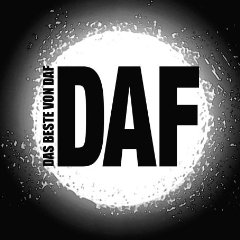All the best pop music is rooted in primal sexual urges. From Little Richard belting out the lascivious ‘Good Golly Miss Molly’ to the disgust of a moral minority only too quick to label it "The Devil’s Music", through to ‘Venus In Furs’ just over a decade later, pop realised that the more "wrong" the sex was to vanilla society, the better the music was.
Witness possibly the greatest ever pop TV moment: a carrot-topped David Bowie is revelling in a personal freedom that speaks volumes to a generation sat rapt in front of their telly as he sings ‘Starman’. As dads up and down the nation fume about poofs, pansies and queers, Bowie’s right hand man(‘s man), Mick Ronson, casts his singer a furtive glance as if seeking approval before making the biggest decision of his life. He takes a hesitant step forward before taking the plunge and allowing the bisexual alien to put his arm around him as they share a single mic. So wrong, yet for so many, it was so sexy it could only be right.
Ergo Düsseldorf’s Deutsch Amerikanischen Freundschaft, or DAF to those without an O-level in German. If ever a band took deviant sex to its logical conclusion, then DAF were it. Muscled, oiled and resplendent in tight, black leather, singer Gabi Delgado and multi-instrumentalist drummer Robert Görl pushed back as many boundaries as possible. Their image, infused with S&M regalia, was homoerotic to the max and like Bowie before them, stirred something in the loins of even the straightest boys.
But there was more to DAF than just their presentation. Their music, the missing link between Kraftwerk and the industrial revolution that followed, was almost onomatopoeic. They sounded like they looked: strict, precise and disciplined. There was no margin for error and, working with legendary producer Conny Plank, they fashioned a sound that was able to strike terror into those for whom World War II was an event that wasn’t that far back in the past.
Indeed, hearing ‘Der Mussolini’ in 1981 was an utter revelation as precise, pumping beats collided with lyrics that made a connection between fascism, religion and dance music ("Do the Mussolini! Do the Jesus Christ! Do the Adolf Hitler!"). Its power to fascinate and repel in equal measure remains undiminished, but it’s impossible not to overstate its impact in a period of the cultural and political shifts that are still being felt to this very day. They called it subversion. Others called it wrong.
As proved by the likes of the delightfully deviant ‘Sex Unter Wasser’ (‘Sex Under Water’) and the regimented ‘Liebe Auf Den Ersten Blick’, DAF, like countless German artists before them, were way ahead of the game. It took ten years for Belgium to catch up while the template had been laid for Nitzer Ebb and Nine Inch Nails amongst others.
Das Beste Von DAF is a handy introduction for anyone with a healthy interest in a side of the 80s that wasn’t dominated by Thatcherite pap or glossed ephemera. It was a time when pop dared to experiment and forge forward with nary a thought to commercial concerns or the consequences of their actions. Perhaps now, after all this time, DAF will finally get the recognition and plaudits they so richly deserve.


